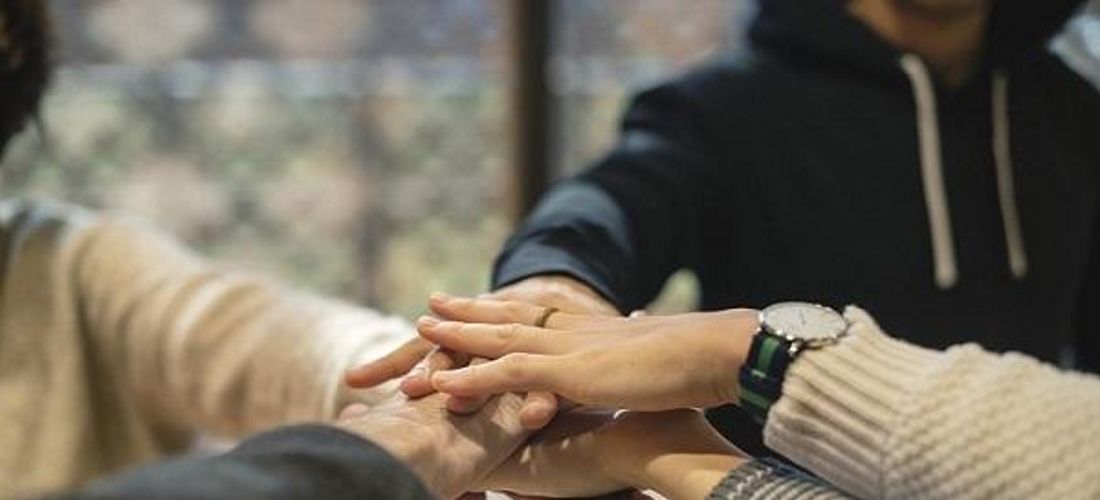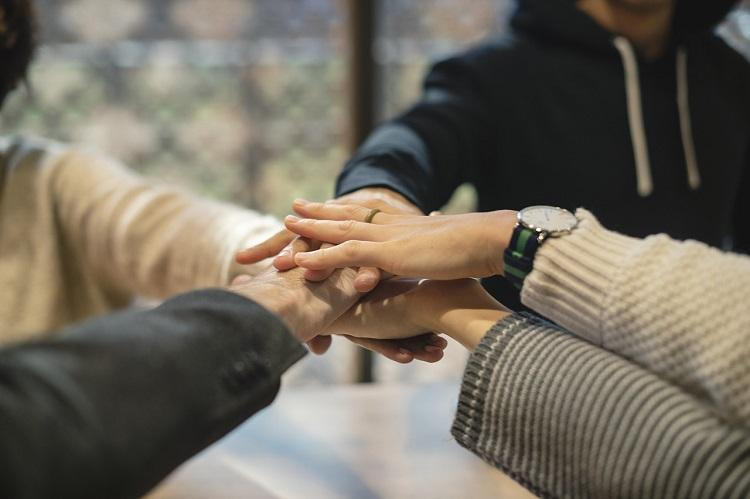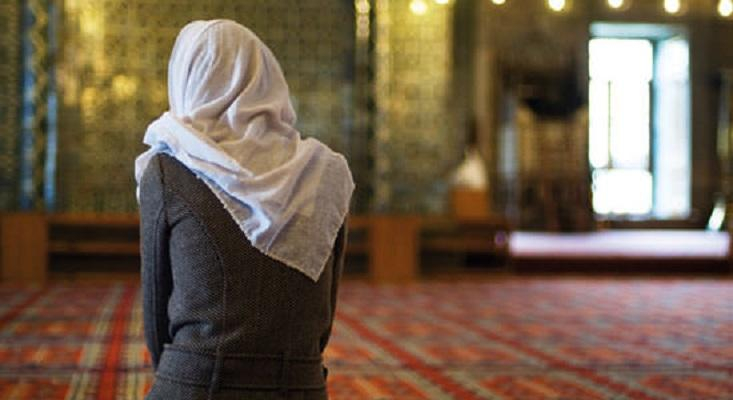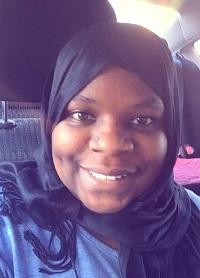Erasing the Ramadan Divide Between Converts & Born-Muslims - Fostering Inclusivity
Faith
|
May 23, 2019
|
6 MIN READ

By Khadijah Abdulhaqq
Ahlan wa sahlan Ya, Ramadan! Ahlan wa sahlan Ya, Ramadan! Oh, what beautiful, welcoming words. However, words alone are not enough.
Ramadan is a month when Muslims gather in prayer. It is also a time to reconnect and rebalance.
In the safety and security of the Muslim community in my hometown of Philadelphia, all Muslims were welcomed. In fact, the word "convert" was rarely spoken or heard. Once a person self-identified as a Muslim, no other classification was deemed necessary.

During Ramadan, attending a slew of iftar gatherings was also not something out of the ordinary. Communal breaking of bread, sharing the work of preparing the meals and community prayer was considered a given. Options were abundant. Deciding upon which masjid or home to eat at was a luxury, which at the time I took for granted. I thought all Muslim communities were this way. However, since moving to Memphis, my eyes have been pried opened to a new Muslim experience - The Convert!
Regrettably, in many Muslim communities, the word “convert” is used as an identifier, a way to otherize an individual. It is a social stigma branded on a new convert like a Scarlett Letter, somehow indicating to other “born Muslims” that the “new to Islam” person is somewhat remiss, lacking or ill-informed. Their Islamic acumen is automatically placed in question, sometimes before anyone knows their name. It is also where the wrapping of the hijab around the hair and chin or the wearing of a thobe is seen as somehow mimicking the “Arabs.” Essentially, the convert label is used as a divider, a barrier, a wall.
Keeping this in mind, too many Muslims are suffering in the shadows of the holy month of Ramadan. This phenomenon is primarily because a majority of North American masajid are run and operated by Southeast Asian or Arab communities. This leaves American-born Muslim converts and those born to Muslim parents (second generation) with few culturally viable options.
The initial welcome mat and enthusiasm that embraces the new convert on the day of their shahadah (testament of faith) are too often quickly and suddenly yanked away and replaced with … well, not much. In my experience and in connecting with Muslim converts, it’s become clear that many of them are left feeling isolated, deprived of the sweetness of community during Ramadan and Eid festivities.

This unfortunate state of affairs brings me to one question: How did we regress to dividing the ummah between converts and those born to Muslim parents?
Allah said in Surah Al Imran, verse 103:
And do not separate. And remember Allah’s favor unto you. You were enemies, and he made you friendship between your hearts so that you can become brothers by His Grace.
Therefore, if one says that they believe in Allah and the Last Day, then he or she is a Muslim; not a half-Muslim, not a sort-of-Muslim, not a Muslim in a way - but a full-bodied Muslim in the sight of Allah. No prefixed labels necessary.
Naming the convert as such is a mechanism for division. It is used to separate, putting a hampering on the connecting of hearts. It is essentially becoming the invisible wall and the silent misplaced judgment. The fact is, there isn’t a soul amongst us that would be Muslim if someone in their lineage hadn’t converted. In Islam, whether born into Islam or making a choice to join the family, once we take our shahadah, we are faithfully sisters and brothers. If we reflect on that simple understanding then perhaps we could be kinder and warmer to one another.
However, this often is not the case, and so it must be addressed. Too many newer Muslims feel displaced or unwelcome in the Muslim communities they live in.
As Muslim communities, we must make a concerted and conscious effort to make the masjid [in an out of Ramadan] an all-inclusive place of spirituality for all who enter. We can do that by recognizing the many ways that we as individuals may prevent people from enjoining in the spirit of Ramadan, and then correct our bad habits. Below are some suggestions to make the masjid a better place for all in Ramadan and beyond:
1. Make it your obligation to greet everyone who greets you, or better yet extend the greeting first. Surah An-Nisa, ayaat 86 says:
When a courteous greeting is given, meet it with a still more generous greeting or at least an equal greeting. Surely Allah keeps of all your actions.
How often have I heard the complaint that “No one spoke to me?” Greeting a new face is a simple act of ibadah that can not only break the ice, but on the most basic of terms connect and fortify hearts.
2. Don’t allow anyone to eat alone in the masjid. If you see a person sitting at a table by themselves, ask to sit with them. Start a conversation. Get to know them. Who knows? You may make a new friend. Shaykh Jamir Meah of Seekers Guidance wrote in his article “The Forgotten Sunnahs, “When people sit together (to eat) … then food becomes the connections between them.”
Ibn Majah by way of Seekers Guidance, "The Forgotten Sunnahs," reported that the Prophet Muhammad (saw) said, “Eat together and not separately, for the blessing is associated with the company.”
Think of a child new to a school where no one is speaking to him or her. Moreover, imagine the sweet sigh of relief when someone invites them to come, sit by me. Envision the pep in his step or the slight turning of his frown into a smile simply because someone just opened a portal to a new world for him. Now, picture yourself doing the same for a new Muslim or a new face in the masjid. How exhilarating! How rewarding! How decently human.
3. Exchange phone numbers with someone new. If possible, invite them to family iftars or create an iftar just for masjid newcomers. Invite new community members to dinner to officially welcome them into the community. In Sahih Al Bukhari, hadith #3316, it is reported that the Prophet (saw) said, “Whoever has enough food for two should seek out a third person, and whoever has enough food for four should seek out a fifth or sixth.”
Many “converts” do not have Muslim family to break the fast with and feel left out of the beautiful hustle and bustle of iftar. Insha’Allah, by extending your hand and showing compassion for your fellow brothers and sisters, your family will become their family.
Last, but not at all least, just be friendly. A kind word or smile goes a long way. The Prophet (saw) said, “Every act of righteousness is a charity, and part of righteousness is to meet your brother with a cheerful face …”

Kindness, which is sadaqah, an act of charity, has the power to change the trajectory of someone’s entire experience within Muslim communities. Imagine the blessings you can receive from your Creator for not only making the house of Allah accessible, but also welcoming - just by sharing a small part of yourself.
We are all brothers and sisters to one another, like links in a chain; we either learn to strengthen and support one another or the entire chain breaks and becomes useless. The choice is yours. Choose wisely, kindly, Islamically. Ramadan Mubarak!
We urge you to check out our partnership with chef Amanda Saab and host a #DinnerWithYourMuslimNeighbor to put into action some of the things Khadijah has talked about above! Share your stories with us.
Khadijah Abdulhaqq is is a writer and an educator. She is the author of the critically acclaimed children’s book Nanni’s Hijab. She has been a guest contributor to Hayati Magazine, AboutIslam.com, Altmuslim, Sapelo Square and various other Muslim-focused publishings. Ms. Abdul-Haqq has a Bachelor’s degree in Health Administration. She is currently enrolled in a Master’s degree program in Education from American University. She is originally from Philadelphia, PA. but currently resides Memphis, TN.
Subscribe to be the first to know about new product releases, styling ideas and more.
What products are you interested in?

